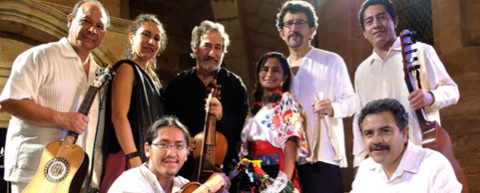Interviews and concert FOLÍAS ANTIGUAS & CRIOLLAS "Del Antiguo al Nuevo Mundo", filmed at the Fondation Pierre Gianadda
Full-length version: 94’
Short version: 60’
DISTRIBUTION :
Soloists of La Capella Reial de Catalunya :
Elionor Martínez, soprano
David Sagastume, contractenor
Vitor Sordo, tenor
Mauro Borgioni, bass
Hespèrion XXI & soloists of the Concert des Nations
PROGRAMME :
Folías antiguas
Anónimo (CMP 121) Folia De la vida de este mundo
Anónimo (CMP 12) Folías "Rodrigo Martinez" (Villancico & improvisations)
Gaspar Sanz Jácaras Son de Tixtla La Petenera
Mateu Flecha
Mateo Flecha San Sabeya, gugurumbé
Tradicional Jarocho El Son de los negritos
Gaspar Fernandez (Mexico)
Villancico (Náhuatl): Xicochi conetzintlé
Tradicional de Tixtla Guaracha (& improvisations) - El arrancazacate Santiago de Murcia Fandango Tradicional jarocho El fandanguito
Gaspar Sanz Canarios
Juan Arañés Chacona I "A la vida bona
Anonymous Codex Trujillo 1780
Tonada del Chimo (Náhuatl)
Cachua serranita "No ay entendimiento humano
Folía is one of the many folk dances and dance songs that developed in the Iberian Peninsula towards the end of the Middle Ages, and which were probably used in their original context for quite a long time, before being assimilated into the court polyphonic repertoire, both vocal and instrumental, in the late 15th and early 16th centuries. Its Portuguese origin was confirmed in 1577 by an influential Spanish theorist, Francisco de Salinas, in his treatise De musica libri septem, and indeed, it is first mentioned in various Portuguese documents from the late 15th century, including plays by the creator of Renaissance theater in Portugal, Gil Vicente, in which it is associated with popular characters, shepherds or peasants in general, busy dancing and singing energetically (hence the name "Folía", which means both "unbridled fun" and "madness" in Portuguese), an easy way to point out its social character to the audience, or to celebrate a happy ending to the action.

